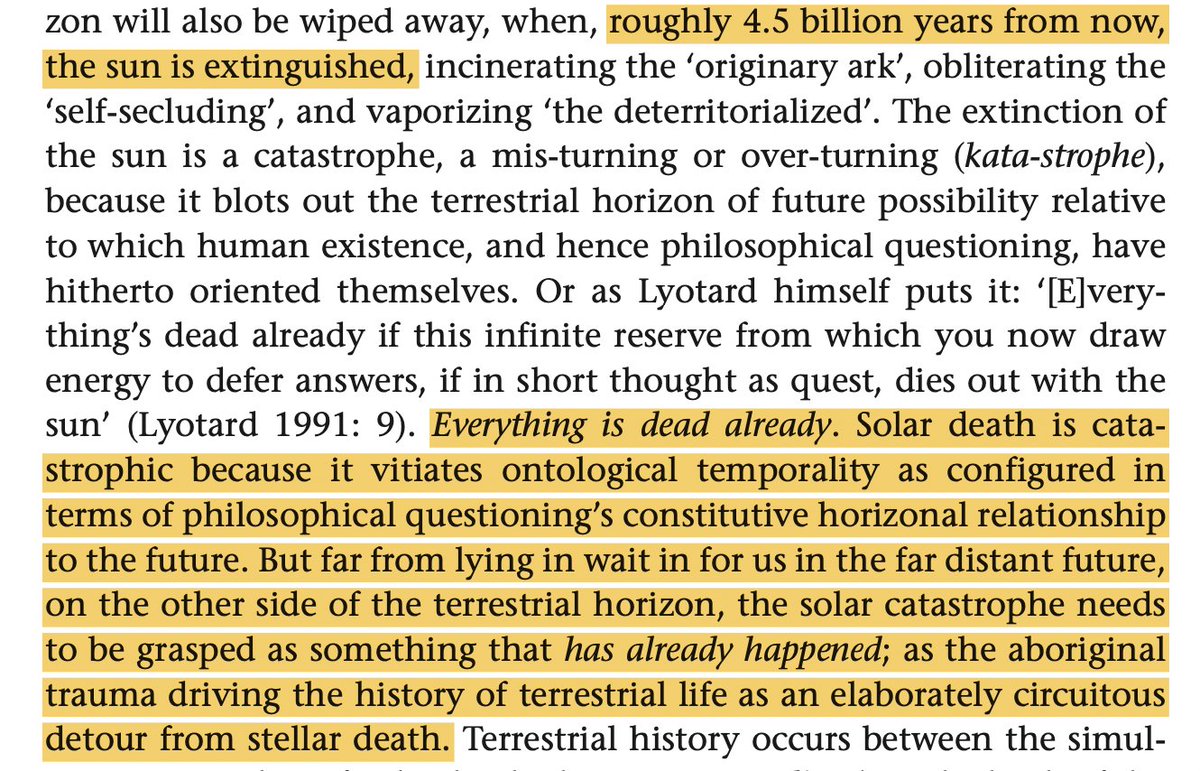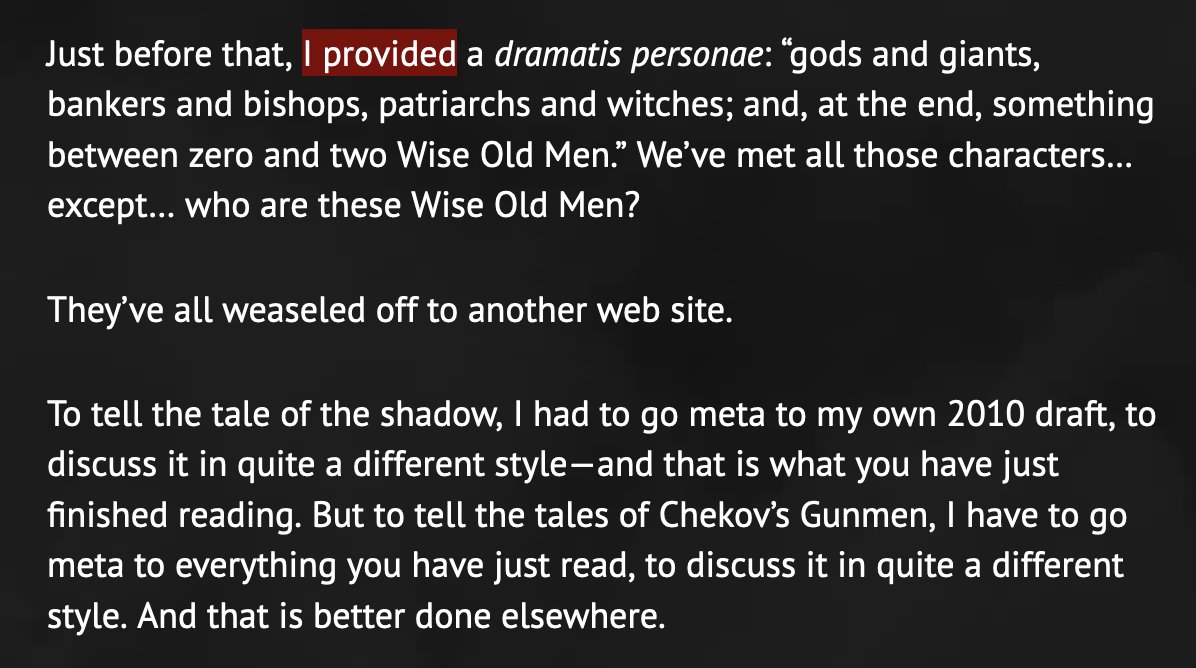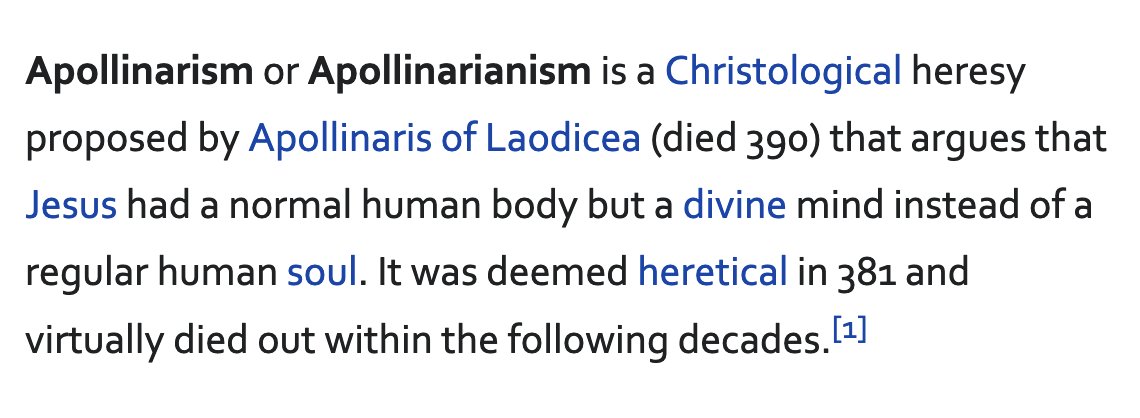
No, this means that @sapinker, in his new book _Rationality_, is seriously misunderstanding (a) how to interpret survey results and (b) the nature and function of believing. news.harvard.edu/gazette/story/… 
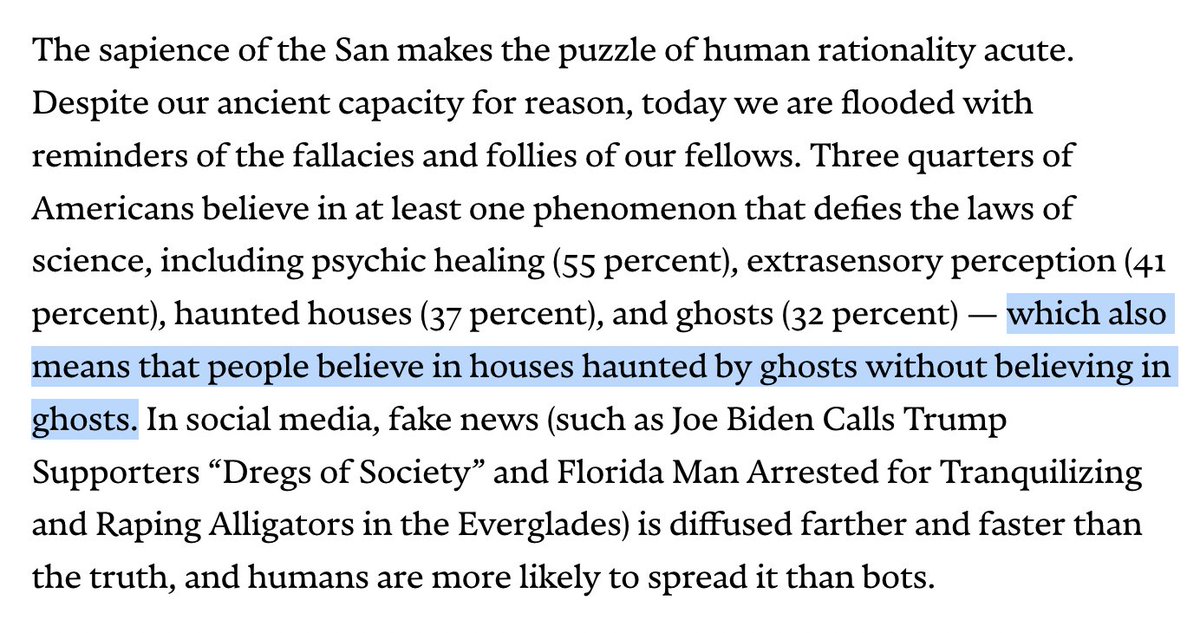
Taking survey results at face value is a technical error, which it seems a professional should be held accountable for (even though it's pervasive in academic psychology). Misunderstanding belief is an ontological error; professional standards do not require getting those right.
Pinker's book does not discuss the haunted house anomaly any further. He footnotes this 2005 Gallup press release for the data.
Taking this as evidence of a highlighted, shocking logical error should at minimum involve considerable further investigation.
news.gallup.com/poll/16915/thr…
Taking this as evidence of a highlighted, shocking logical error should at minimum involve considerable further investigation.
news.gallup.com/poll/16915/thr…
I am highly sympathetic to his general thesis: that rationality is enormously valuable and important; that its methods should be more often taught; and that irrationality is a huge problem, especially in American politics currently.
All the more reason to get details right!
All the more reason to get details right!
Taking "belief" as definite, so that there is an objective matter of fact about what someone believes (even though we may not have direct access to it), is a pervasive foundational ontological error in the rationalist tradition Pinker assumes.
metarationality.com/reasonable-epi…
metarationality.com/reasonable-epi…
If believing was ontologically definite, then the likely interpretation of the anomaly would NOT be a logical failure ("I DO believe there are houses with ghosts in them, but I do NOT believe there are ghosts"), but some sort of measurement error in the survey methodology.
There are endless possible reasons the survey might give anomalous results ("noise" e.g., i.e. "they suck but we don't know in detail why"). Plausibly, though, some people might think houses could be haunted with something other than ghosts.
(This is... logic, you know...)
(This is... logic, you know...)
The Gallup report includes the actual survey questions, which ask whether you believe "that houses can be haunted," without specifying what the could be haunted by. Banshees, gremlins, elves, invisible dragons in the garage...
Since beliefs are *not* ontologically definite, I think it's likely that many people "believe that houses can be haunted" without having any specific idea of what that means.
We should ask: what is someone *doing* when they answer a survey question?
Almost certainly not reporting their direct access to some brain thing that consists of brain-ese equivalent of the English sentence "houses can be haunted" plus "TRUE."
(h/t @literalbanana here!)
Almost certainly not reporting their direct access to some brain thing that consists of brain-ese equivalent of the English sentence "houses can be haunted" plus "TRUE."
(h/t @literalbanana here!)
@literalbanana My *guess*: respondents interpret the question as an opportunity to state their social attitudes. "Yes, I believe houses can be haunted" means "I am the sort of agreeable, open-minded, not highly educated person who says they believe in supernatural things, like my friends."
"I'm not like those obnoxious know-it-all rationalists who think they are special and are always trying to put ordinary people down by dumping on their beliefs" metarationality.com/reasonable-epi… 
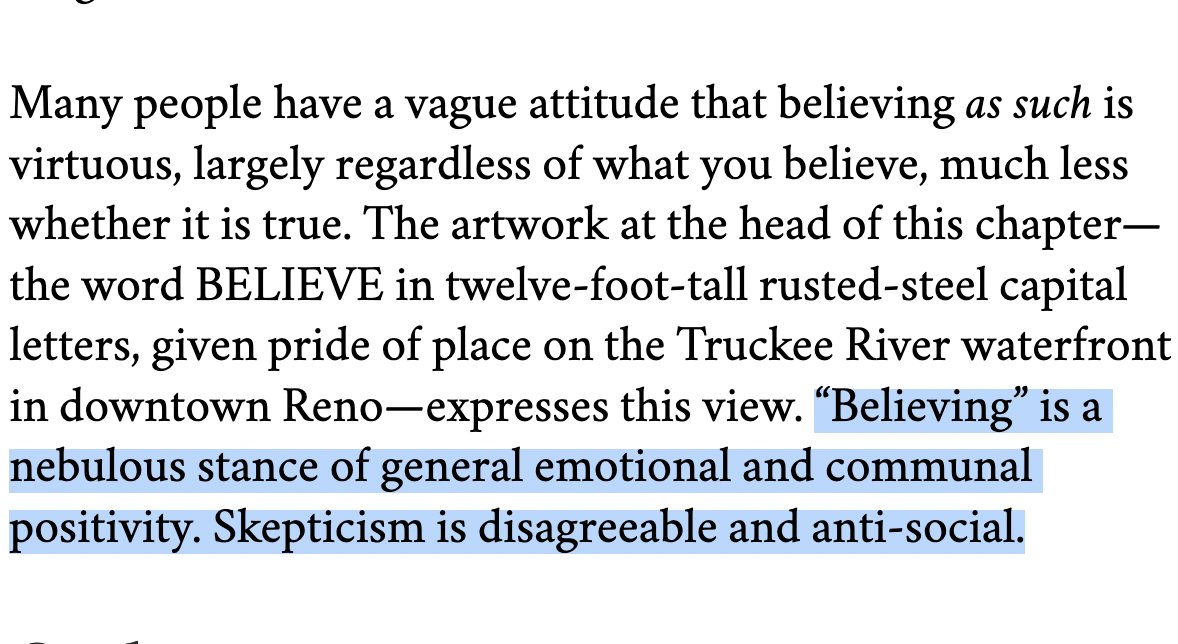
• • •
Missing some Tweet in this thread? You can try to
force a refresh


